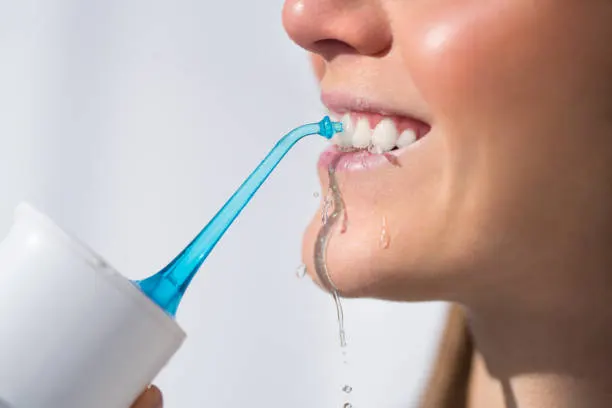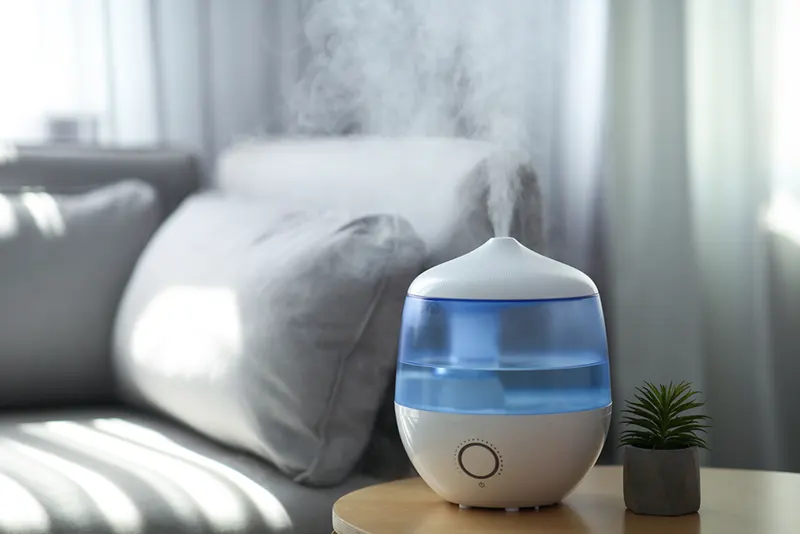Maintaining good oral health requires effective and regular flossing. Traditionally, dental floss has been the go-to method for cleaning between teeth and along the gumline. However, with advancements in oral care technology, the best water flossers have gained popularity as an alternative to traditional flossing. In this blog post, we will explore the differences between water flossing and traditional flossing, and discuss why a water flosser may be the best choice for your oral health.
More Effective in Removing Plaque
Water flossers use a powerful stream of water to clean between teeth and along the gum line, effectively removing plaque and food particles that may be missed by traditional flossing. The pulsating water jet can reach deep into the tight spaces between teeth and along the gum line, providing a more thorough and effective clean compared to traditional flossing.
Gentle on Gums
Traditional flossing can sometimes be harsh on gums, especially for those with sensitive gums or gum diseases. Water flossers, on the other hand, use a gentle and pulsating stream of water that massages and stimulates the gums, promoting gum health without causing irritation or bleeding.
Easy to Use
Water flossers are simple to use, making it easier for people to maintain a consistent flossing routine. With traditional flossing, proper technique and dexterity are required to maneuver the floss between teeth and around the gum line, which can be challenging for some. Water flossers, with their convenient handle and adjustable water pressure, make it easier to reach all areas of the mouth for a thorough clean.
Time-Saving
Water flossing can be a time-saving option compared to traditional flossing. With a water flosser, you can quickly and effectively clean your entire mouth in just a few minutes, whereas traditional flossing may take longer, especially for those who struggle with dexterity or have multiple dental restorations.
Ideal for Braces and Dental Implants
Water flossers are highly recommended for individuals with braces, dental implants, or other dental restorations. Traditional flossing can be challenging and time-consuming for those with orthodontic appliances or dental implants, whereas water flossers can easily clean around brackets, wires, and dental implants without the risk of damaging them.
Versatile and Customizable
Water flossers offer versatility and customization options to suit individual needs. Most water flossers come with adjustable water pressure settings, allowing users to choose the right level of pressure for their comfort and oral health needs. Some models also come with different nozzle tips, catering to specific dental concerns, such as gum health, orthodontic care, or plaque removal.
Enhanced Oral Health Benefits
Water flossing has been clinically proven to provide several oral health benefits, including reducing gum bleeding, improving gum health, reducing plaque and gingivitis, and preventing bad breath. The pulsating water jet from a water flosser can reach areas that are difficult to clean with traditional flossing, resulting in better oral health outcomes.
Great for All Ages
Water flossers are suitable for people of all ages, from children to the elderly. Children who may struggle with traditional flossing due to a lack of dexterity or compliance can find water flossers more enjoyable and easier to use. Elderly individuals who may have limited mobility or dexterity can also benefit from the convenience and effectiveness of water flossing.
Cost-Effective in the Long Run
While the initial cost of a water flosser may be higher than traditional floss, it can be considered as a cost-effective investment in the long run. Traditional floss requires regular repurchasing, whereas a good-quality water flosser can last for years with proper maintenance. Additionally, the potential savings from preventing costly dental procedures, such as cavities, gum diseases, and dental restorations, can outweigh the initial investment of a water flosser.
Environmentally Friendly
Water flossers are also considered to be more environmentally friendly compared to traditional floss. Traditional floss is typically made of nylon or other synthetic materials, which can take years to decompose and contribute to plastic waste. On the other hand, water flossers do not generate any waste, as they use water as the primary cleaning agent.
Convenience for Travel
Water flossers are also convenient for travel. Many water flossers come in compact and portable designs, making them easy to pack in your luggage or carry-on bag. Some models even come with travel cases or pouches for added convenience. This allows you to maintain your oral hygiene routine even when you are on the go.
Easy to Clean and Maintain
Water flossers are generally easy to clean and maintain. Most models come with removable water tanks and nozzle tips that can be easily cleaned with water or mild soap. Regular cleaning and maintenance can help prolong the life of your water flosser and ensure optimal performance.
Recommended by Dental Professionals
Water flossers have gained recognition and recommendation from dental professionals worldwide. Many dentists and dental hygienists recommend water flossers as an effective and convenient alternative to traditional flossing. In fact, the American Dental Association (ADA) has granted its Seal of Acceptance to some water flosser brands, indicating that they meet ADA’s rigorous standards for safety and effectiveness.





